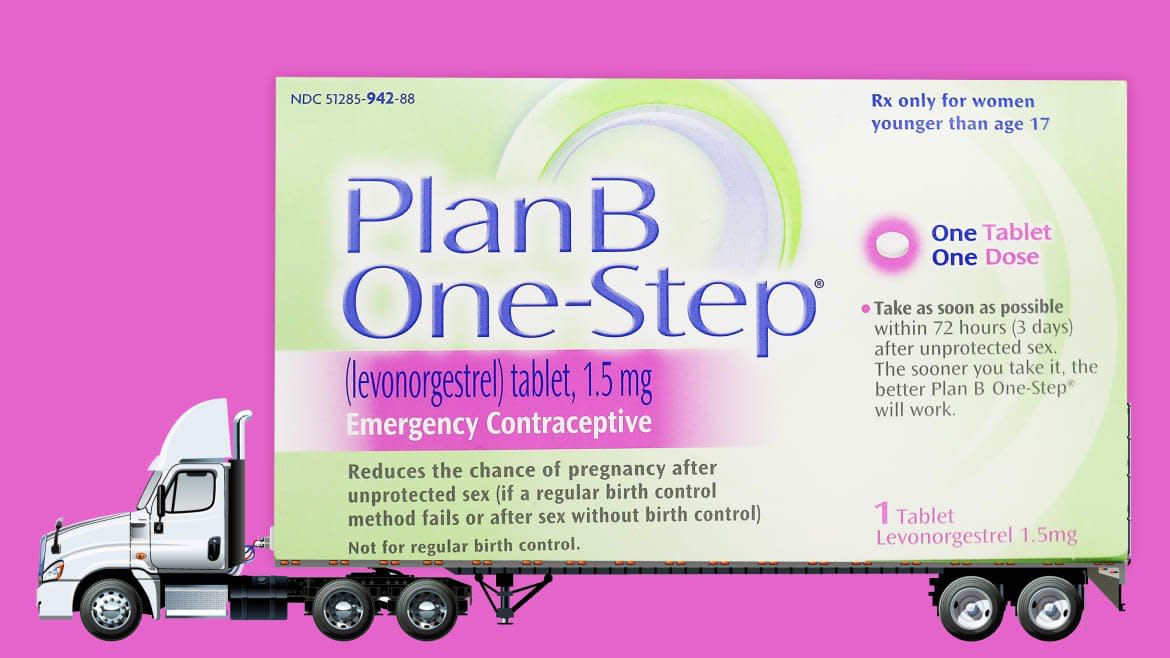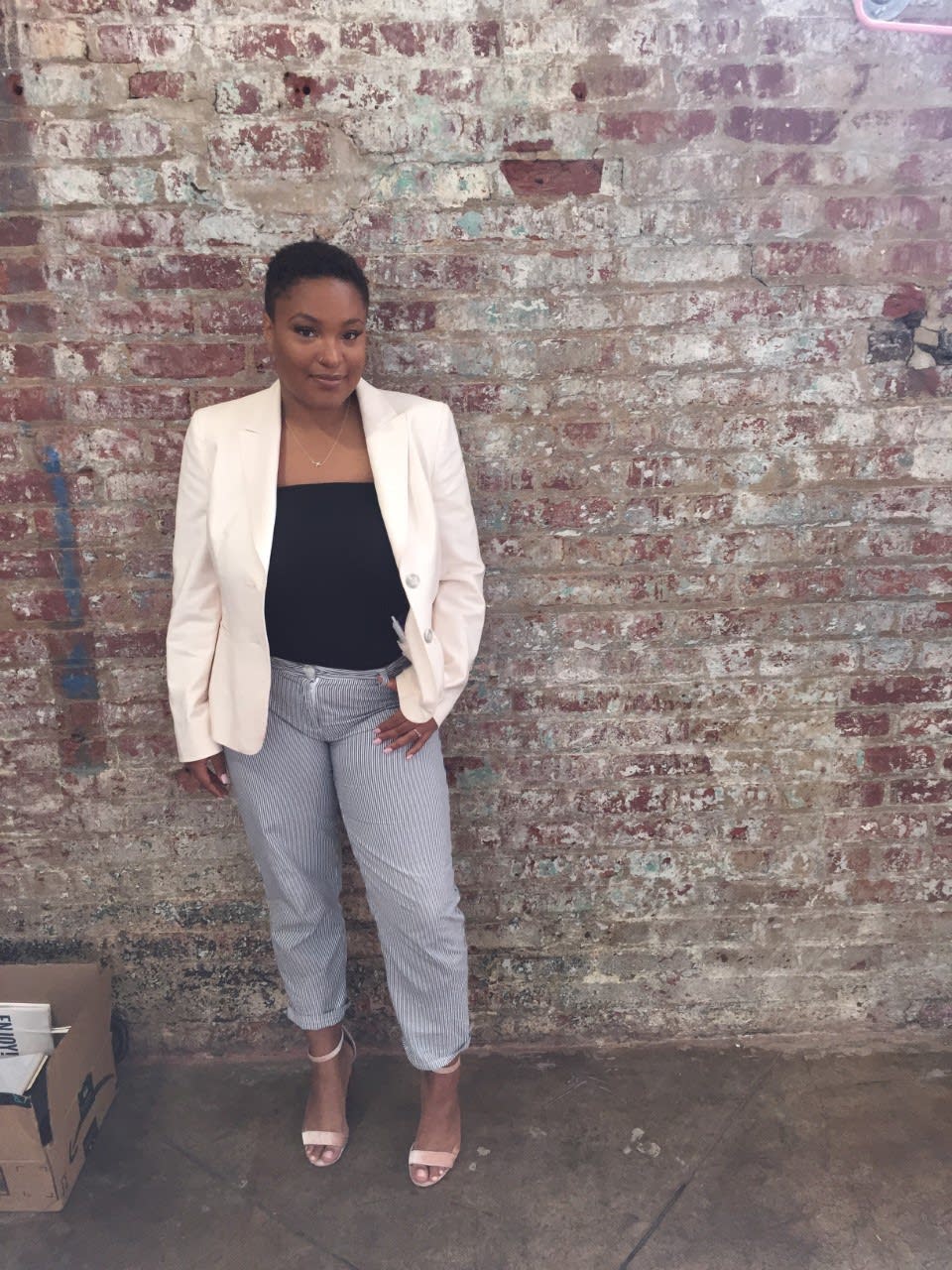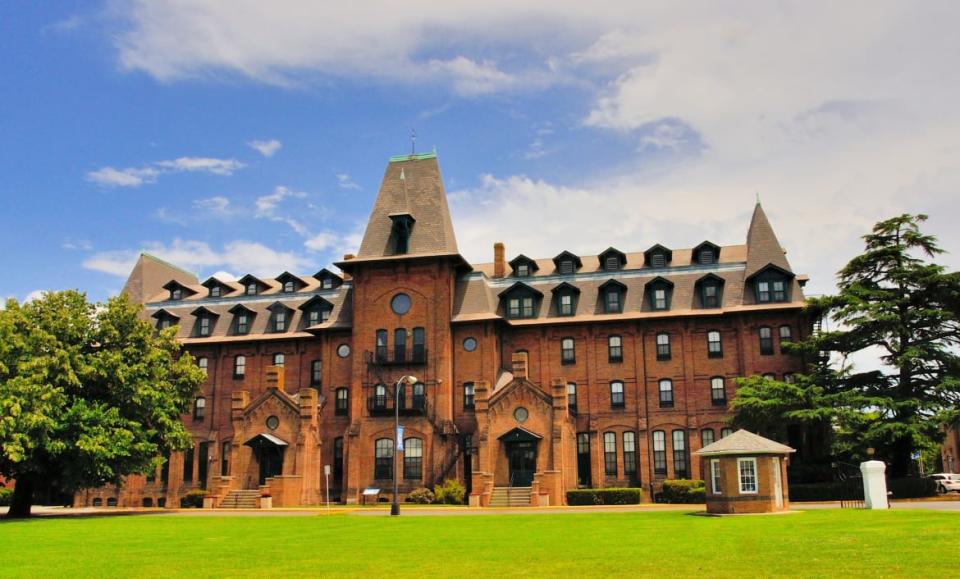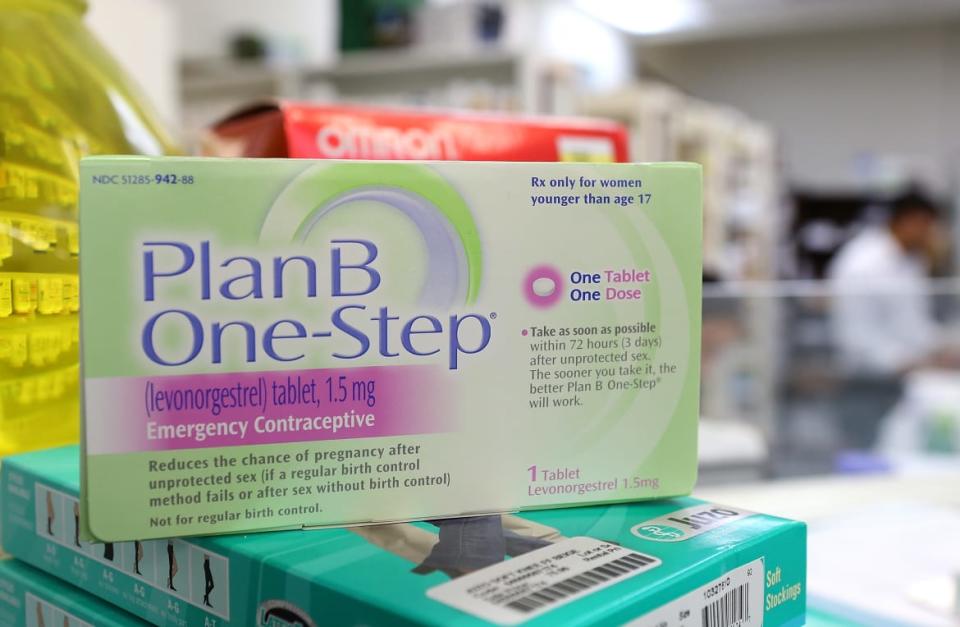When There’s No Plan B on Campus, It’s These Women to the Rescue

In her apartment near campus, tucked inside a TV stand and surrounded by textbooks and laundry, Hampton University senior Michyah Thomas keeps 10 boxes of emergency contraception. On a recent morning, she delivered one of those boxes to a student outside of her campus workplace. She had never met the student before, and didn’t even know her name, but could see the relief on her face instantly.
“When I gave it to her she thanked me and she said, ‘I really needed this, I didn’t know where else to go,’” Thomas said. “That’s kind of a common thing for us.”
Thomas is the co-founder of the Repro-Emergency hotline at Hampton, a grassroots organization that offers emergency reproductive and other health services to students at the historically black university in Hampton, Virginia. Unlike many other colleges, students say Hampton does not stock emergency contraception at its student health center.
After hearing students complain about contraceptive access for years, and having their suggestions ignored by health center staff, Thomas and co-founder Alexandria Brown decided to take matters into their own hands.
“We wanted to make sure that even in a more restrictive state than others, on a more restrictive campus than others, that we were doing our part to make people comfortable and feel like, ‘Yes, you deserve access to these services,’” Thomas said.
Somebody Please Explain the Morning-After Pill to Male TV Writers
Situated on the eastern shores of Virginia, Hampton is a small school with a rich history. It was founded on the grounds of a former plantation in 1868 to educate freed slaves. A tree just outside campus—Emancipation Oak—is said to be the first place in the former Confederate states where the Emancipation Proclamation was read.
Despite its revolutionary roots, the university maintains some conservative traditions. Students must follow a dress code when entering dining halls or class rooms—no baseball caps, bare feet or sports jerseys without a T-shirt underneath—and freshman are held to an 11 p.m. curfew for the first weeks of the school year. In dorms, visitation for members of the opposite gender is heavily restricted.
Perhaps that’s why while other universities are rolling out 24-hour Plan B vending machines, Hampton doesn’t stock it on campus. Brown and Thomas said students can obtain a prescription for the drug—usually available over the counter—from health center staff, then arrange to have it delivered to them through an outside pharmacy. Brown said the process can take days.
So when Brown and Thomas met at a reproductive rights fellowship, the idea to expand access on campus came naturally.
“We were just looking at what the health center didn’t provide for reproductive health,” Brown said. “At first we were going to do a shuttle system to get students to Planned Parenthood, but that kind of fell through, so we were like, ‘What’s another way for [students] to contact us?’ We just kind of fell on the idea of a hotline.”

Michyah Thomas co-founded the Repro-Emergency hotline at Hampton University.
Executing on the hotline took months of planning. Brown and Thomas wanted wanted their services to be free, which meant stockpiling donations of Plan B and other sexual health supplies inside their cars and dorm rooms. The donations came from local health centers, reproductive rights organizations, and even alumni—“literally anyone who heard about the project and thought it was good,” Thomas said.
They also needed someone to staff the hotline. The plan was for calls to go directly to Thomas’s phone, but she needed other volunteers to carry help out the request—whether it was a delivery of emergency contraception or a ride to a local clinic. Through their activism networks, the founders assembled about a dozen student volunteers and connected them all via a giant group text.
When it finally came time to launch, Brown and Thomas proceeded like any good millennials—with a dramatic Instagram roll-out. For an entire week at the end of March, the students put out “announcement countdown” posts each day with information about contraceptive access and stigma. That Friday, they announced the launched of their hotline.
“Emergency Services connection from the comfort of your room,” the pink-and-purple post declared. “For any of your sexual health needs, we’re here to help out.”
For the next week and a half, the students said they received at least two requests for help every day. The majority of the requests were for emergency contraception and condoms, but others requested transportation to hormone therapy appointments or even ordinary doctor’s visits.
One night, Thomas said, she was called to assist a student after a sexual assault.
“She was very apprehensive to go to the hospital,” Thomas recalled. “She really just needed a hand to hold.”
Thomas, who is a sexual assault survivor herself, delivered the student emergency contraception and sat with her throughout the night. In the morning, she referred her to emergency services. Later, she went with her to get STD testing.
“That was a hard night. I can’t lie,” Thomas said. “But it made me feel good that she trusted me with her situation because I know that how hard it is being a survivor.”
“To know that in this emergency situation, that students know there is someone here who has your back—who you can text or call any time of the night and she’ll be there—that means a lot to me.”

Hampton University students say they cannot get Plan B on campus.
Not every part of the hotline has been so rewarding. About a month after the service launched, the Hampton administration sent out an email to the entire campus cautioning them against the hotline. The email emphasized that the hotline was not sanctioned by the university, nor run by licensed health professionals. Students who received medication from the hotline did so “at their own risk,” the email said.
Later, after a local news station ran a story about the hotline, Thomas said several faculty members made disparaging comments. Some said she was “crazy,” she claimed, while others told her she was damaging the school’s reputation. Thomas said she even considered turning down The Daily Beast’s interview request because of the potential backlash, but decided the media attention—and possible donations that could come with it—were worth the risk.
“We kind of just had to weigh the risk factor of helping people and experiencing some backlash,” she said. “It is something I’m nervous about because it’s a private institution and it’s not easy to change the rules. But what we are doing is important, and we will continue to do what is important.”
A spokesperson for Hampton University relations said students could obtain emergency contraception over the counter at local pharmacies, or could obtain a prescription from the health center on campus. They did not respond to multiple calls and emails asking whether the medication itself was available on campus. The spokesperson was not aware of any negative comments made to Thomas or Brown.

Plan B is sold over the counter at pharmacies.
Emergency contraception has been available over the counter, without age restrictions, since 2012. But in recent years, access to the medication on college campuses has become a staple of the culture wars—a kind of stand-in for the idea that college student are too promiscuous or irresponsible about sex.
In 2012, when news stations reported that Shippensburg College, Pennsylvania, had installed one of the first emergency contraception vending machines on campus, the school was reportedly flooded with angry calls and emails from around the country. The vending machine even became a Saturday Night Live punchline.
Several years later, when more colleges started installing the machines, evangelist Franklin Graham decried them to his nearly 8 million Facebook followers for “promoting sex”. Last year, conservative blogs celebrated when Yale University had to discontinue plans for a similar machine over a violation of state law.
Despite the controversy, Thomas and Brown both said the hotline is one of the most rewarding things they’ve done on campus. Brown only recently became involved with the reproductive rights cause, after years of thinking she was the only one struggling to fit her birth control appointments in around her busy student-athlete schedule. Talking to other students about the lack of access has made her feel less alone, she said.
Thomas, on the other hand, has been working on reproductive rights for years. She runs another reproductive rights group on campus and met Brown during their fellowship at NARAL Pro-Choice Virginia. After hearing students complain about their struggle to access contraceptives on campus for so long, she said it felt good to finally do something about it.
Next year—their last one at Hampton—Brown and Thomas hope to expand the hotline and make it more convenient for students. Eventually they want to develop an app that could be rolled out at schools across the country. But even if the hotline never expands, Thomas would consider it a success.
“Every single person that comes to us, there’s a weight taken off their shoulder because they’ve reached out to us and we were able to help to help them,” she said. “And I think that’s what success looks like.”
Get our top stories in your inbox every day. Sign up now!
Daily Beast Membership: Beast Inside goes deeper on the stories that matter to you. Learn more.

